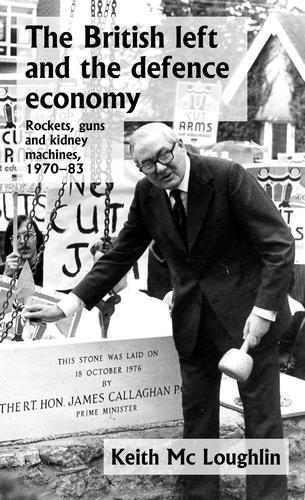
The British Left and the Defence Economy: Rockets, Guns and Kidney Machines, 197083
(Hardback)
Publishing Details
The British Left and the Defence Economy: Rockets, Guns and Kidney Machines, 197083
By (Author) Keith Mc Loughlin
Manchester University Press
Manchester University Press
29th March 2022
United Kingdom
Classifications
Tertiary Education
Non Fiction
Political ideologies and movements
History and Archaeology
320.94109047
Physical Properties
Hardback
232
Width 156mm, Height 234mm, Spine 14mm
503g
Description
This book charts the dispute over defence spending between the left and business, government and the trade unions between 1970 and 1983.
Forty years before COVID-19, socialists in Britain campaigned for workers to have the right to make socially useful products, from hospital equipment to sustain the NHS to affordable heating systems for the impoverished elderly. This movement held one thing responsible above all else for the nations problems: the burden of defence spending. In the middle of the Cold War, the left put a direct challenge to the defence industry, the Labour government and trade unions. The response it received revealed much about a military-industrial state that prioritised the making and exporting of arms for political favour and profit.
The British left and the defence economy takes a fine-grained look at peace activism from the early 1970s to Labours landslide defeat in the 1983 general election, incorporating activism, politics and the workplace to examine the conflict over the economic cost of Britains commitment to the Cold War. Moving away from the perception that the peace movement was post-materialist or above the crises of post-war deindustrialisation and unemployment, this book asserts that the wider left presented a comprehensive, detailed and implementable alternative to the stark choice between making weapons and joining the dole queue.
This book will be invaluable to researchers and students studying the history and politics of post-war Britain. It challenges many widely accepted conclusions, including the abandonment of social democracy and Britains inability to find a role after the loss of its empire. This account provides a glimpse at an alternative future, one based on compassionate, environmental production suited to our troubled times.
Author Bio
Keith Mc Loughlin is a Lecturer at the University of Bristol
